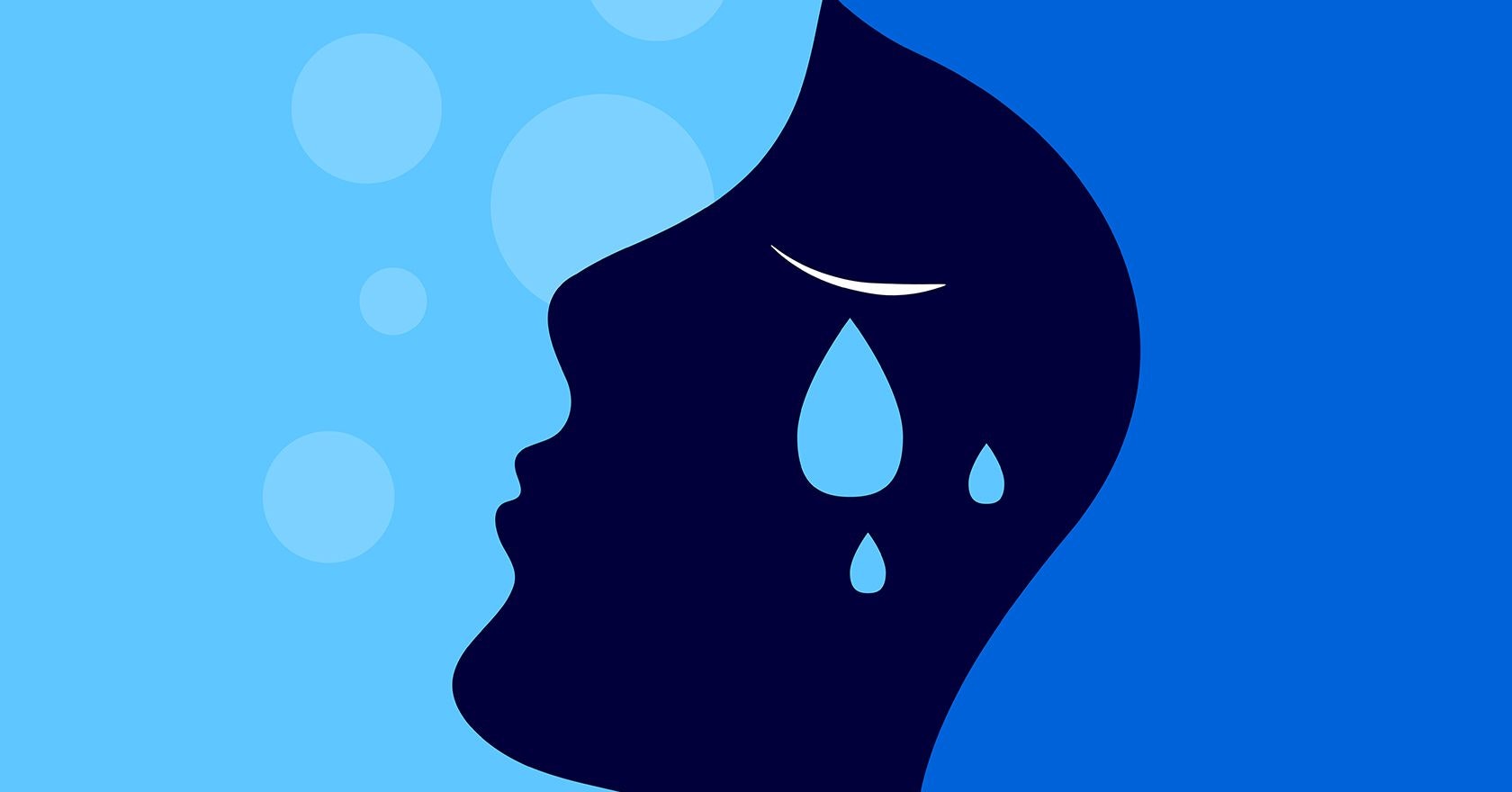
Puffy eyes, exhaustion and an urge to crawl under a blanket are totally normal responses to an ugly crying sesh. Here’s why.
When was the last time you had a really good, ugly cry? You know the kind: full-on sobbing, gasping for breath, snot flying all over the place. Chances are, you felt properly drained afterwards, both physically and emotionally.
But what’s going on here? Why is crying so mentally and physically exhausting? We asked the experts what happens in our brains and bodies during a good old-fashioned bawl, and here’s what we discovered.
According to Harvard Medical School, crying is a uniquely human phenomenon, fulfilling a range of functions from removing foreign matter from our eyes to being a natural response to a raft of human emotions.
Crying is good for us
And it really is good for us, as studies show that repressing difficult emotions has a negative effect on our immune systems and cardiovascular function, as well as our mental health.
You may also like
Lockdown making you feel wobbly? Don’t be ashamed to let out a cry, it’s good for your health
It’s instinctive
Psychotherapist Roxy Rhodes explains that those tears have an evolutionary function too: “Science shows that humans and animals give off subtle messages to other members of the species through compounds in our tears, sending chemical messages to those close by. This can bring about an emotional response in them; empathy, for example, and the instinct to comfort. Or it can even signal them to stay away.”
So that’s why my dog crawls into my lap whenever I’m crying, but my husband steers clear.
What’s happening in our brains when we cry?
Navit Schechter, therapist and founder of Conscious Calm, explains: “When we cry, we’re opening the gate to feeling our difficult emotions. Emotions about the present can bring up past emotions that have been trapped or suppressed and can be deeply painful. We should be taking notice of these signals of overwhelm and distress.”
As the tears flow, our brains are rallying to regroup, by secreting vital hormones such as oxytocin and endorphins. Schechter says, “These act to soothe us, helping us to be better, calmer and more connected to others around us.”
You may also like
Cathartic release: how to release ‘pent-up’ emotions in a healthy and productive way
Our natural instinct to physically comfort a crying person serves an important purpose here, helping to calm the nervous system and allow reintegration into society.
Interestingly, Rhodes explains that what’s going on in our brains depends on why we are crying in the first place: “The hormones released by our brain depend on what emotion we’re going through: sadness, grief, joy, rage and so on all elicit a different hormonal response, which has a different effect on our brain.
“The more emotional the trigger, the more drained we are likely to feel. This is deeply personal, and the same situation won’t elicit the same emotional response in everyone; it’s all about our personal perceptions of the trigger.”
So that explains why not all of us cry at the same movies or even adverts (or is that just me?) .
What’s going on in our bodies?
“Crying is really hard on our bodies,” Rhodes explains. “While crying, your heart rate increases and breathing slows down and is less effective as we’re not filling our lungs right to the bottom. This means we’re not getting enough oxygen into our blood, which can lead to hyperventilation.”
This lack of oxygen leaves us feeling sleepy, and the tiredness is compounded by the release of hormones in our tears.
“Crying releases a ton of hormones, including chemical endorphins (painkillers) and oxytocin, also known as the ‘love hormone’. These induce a sense of calm and promote sleepiness,” explains Rhodes.
“It also relieves our bodies of toxins and stress hormones such as cortisol and prolactin, leaving us feeling calmer and less stressed, if utterly exhausted.”
You may also like
PMS: what’s the deal with all the crying before your period? An expert explains how to tackle the tears
How to recover from a crying session
Most of us can’t just down tools and take to our beds on an emotional day. So how can we regroup and get on with life?
“After a tough crying session, have a quick catnap if possible,” advises Rhodes. “If this isn’t practical, try some meditation or go for a walk in a green space. You need to actively work on calming the emotional part of your brain down. Drink some water to get your fluid levels back up. Where you can, cancel any unnecessary commitments and prioritise yourself. You’ll know when you feel better.”
You may also like
Here’s how to recover if you cry at work
Schechter describes this urge to hunker down as a primal instinct. “There is a theory that feelings of sadness are physically draining in an attempt to force us to retreat,” he explains. “This would have been an evolutionary advantage in the past, when the loss was likely to be against a wild animal or a rival tribe.
“These days, even though the losses we experience are more psychological, the same biological drive exists. When we feel tired and drained after a good cry, it may be the body’s way of forcing us to retreat and rest until we’re feeling stronger again and ready to face the world.”
Images: Getty
Source: Read Full Article